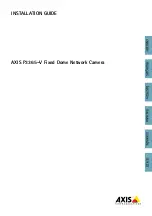
Chapter 4
139
Basic Configuration Tasks
Configuring Logging
Configuring Logging
SNAplus2 writes log messages describing abnormal events (and,
optionally, normal events) to log files. When you try to diagnose a
problem, the first place to look is in the log files, because the log
messages provide information about the cause of the problem and the
action you should take.
SNAplus2 logs messages for the following categories of event:
Problem
An abnormal event that degrades the system in a way
perceptible to a user (such as abnormal termination of
a session).
Exception
An abnormal event that degrades the system but that
is not immediately perceptible to a user (such as a
resource shortage), or an event that does not degrade
the system but may indicate the cause of later
exceptions or problems (such as receiving an
unexpected message from the remote system).
Audit
A normal event (such as starting a session).
To distinguish between logs relating to normal and error conditions, the
different message categories are logged to different files. Problem and
exception messages are logged to the error log file; audit messages are
logged to the audit log file.
SNAplus2 provides a backup mechanism to prevent log files from
becoming too large and consuming disk resources. When a log file
reaches the maximum permitted size, SNAplus2 copies its current
contents to a backup file and then clears the log file.
By default, SNAplus2 uses the following log files:
Error log file
/var/opt/sna/sna.err
/var/opt/sna/bak.err
(backup)
Audit log file
/var/opt/sna/sna.aud
/var/opt/sna/bak.aud
(backup)
Summary of Contents for HP-UX SNAplus2
Page 4: ...4 ...
Page 14: ...14 Contents ...
Page 22: ...22 ...
Page 23: ...23 1 SNA Terms and Concepts ...
Page 65: ...65 2 Introduction to SNAplus2 ...
Page 107: ...107 3 Administering SNAplus2 ...
Page 132: ...132 Chapter3 Administering SNAplus2 Using the Command Line Administration Program ...
Page 133: ...133 4 Basic Configuration Tasks ...
Page 142: ...142 Chapter4 Basic Configuration Tasks Configuring Logging ...
Page 143: ...143 5 Defining Connectivity Components ...
Page 167: ...167 6 Configuring Dependent LUs ...
Page 174: ...174 Chapter6 Configuring Dependent LUs Defining LU Pools ...
Page 175: ...175 7 Configuring APPC Communication ...
Page 208: ...208 Chapter7 Configuring APPC Communication Configuring APPC Security ...
Page 209: ...209 8 Configuring User Applications ...
Page 222: ...222 Chapter8 Configuring User Applications Configuring RJE Workstations ...
Page 223: ...223 9 Configuring Passthrough Services ...
Page 235: ...235 10 Managing SNAplus2 from NetView ...
Page 248: ...248 Chapter10 Managing SNAplus2 from NetView Using UCF ...
Page 249: ...249 11 Managing SNAplus2 Clients ...
Page 300: ...300 Chapter11 Managing SNAplus2 Clients Managing HP UX Clients ...
Page 301: ...301 A Configuration Planning Worksheets ...
Page 337: ...337 B APPN Network Management Using the Simple Network Management Protocol ...
Page 343: ...343 C Configuring an Invokable TP Using snaptpinstall ...
Page 353: ...353 D Using SNAplus2 in a High Availability Environment ...
















































